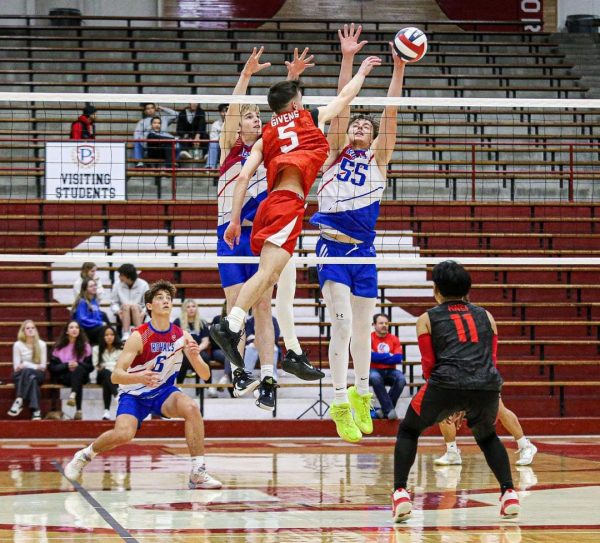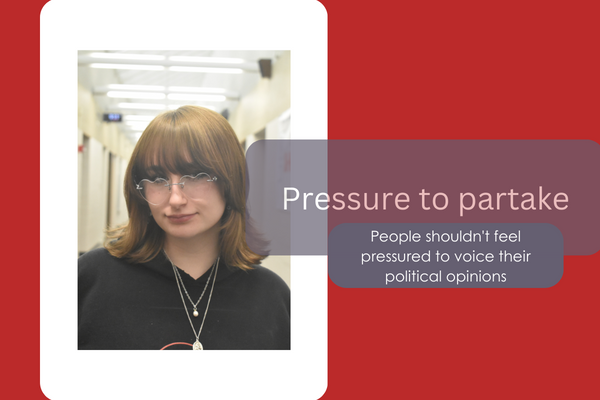‘Something for nothing’
New grading policy introduced at SHS
Social studies teacher David Luers grades papers at his desk. He is not a big fan of the new grading system.
Last year, the district held a committee with principals from grades 6-12. The idea of a new grading policy was presented to the school board.
The reasoning behind the idea was to create a consistency of how grades were calculated for all secondary schools.
Before, there were different categories being used when grading, which made it confusing for both students and parents to understand how grades were being calculated.
This new policy hopes to get rid of that confusion by making it simpler, with semester grades being split into two categories. The practice category, which will take up 20% of the semester grade, and the performance category which will take up 80% of the grade.
“For teachers that maybe had five different categories in the past, trying to figure out what should go into practice and what should go into performance was difficult,” principal Brian Knight said.
Two other changes were brought about with the new policy. One of these changes is how plagiarism will now be scored. The other change is the no zero system.
As a result of the system, students will receive a 50% or higher for any assignment, including plagiarized assignments. However if a student plagiarizes, they will be written up, and sent to the dean’s office.
“I feel like–giving something for nothing, I’m not a huge fan of that,” social studies teacher David Luers said.
The system also makes it so students who don’t turn in their work will receive a 50%.
“I just feel like it can be abused by kids, and it’s an easy way out for some kids rather than actually doing the work so that they can actually learn the material,” Luers said.
There have been different opinions among staff about the new policy and whether it would leave a positive impact.
“I don’t know if this is a perfect system. We’ll kind of have to see,” assistant principal Amy Boone said.
Even though Luers doesn’t like the no zero policy, he agrees with many teachers that the weights on assignments is a good decision.
“If our assignments are all supposed to build up to assessments to test what the kids are actually able to do, I agree that performance should be way heavier than homework, so I’m okay with that,” Luers said. “I think it actually is a good idea compared to what we’ve done in the past.”
English department chair Samuel Hanley shared a similar opinion as he believes that it will be beneficial for students with a couple of missing assignments.
“I think that it might be really helpful to kids who have one or two missing assignments,” Hanley said. It doesn’t create a giant hole for them to dig out of when those missing assignments were calculated with zeros.”
Students shared similar opinions about the policy, as they believe it’ll result in a positive outcome, and they’ve found it to be beneficial for them so far.
“I am fond of the policy that the lowest assignment grade you can get is 50%,” sophomore Dawt Hlei Sang said. “This change puts more of an emphasis on learning rather than grades, and can alleviate stress that some students may have about their grades.”

Hi, my name’s James Ceu and I am a sophomore at SHS. I am going to be one of the News Reporters for The Journal this school year! In my free time I enjoy...











